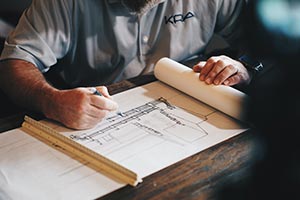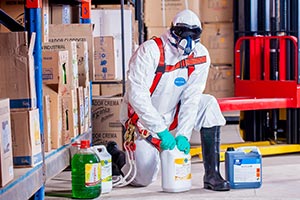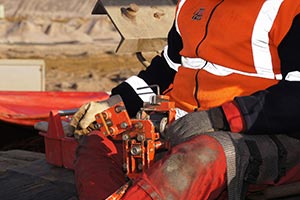What is
the CE marking of a pleasure boat?


Many products, including recreational boats, jet skis and their components, must bear the CE mark in order to be placed on the market or put into service in the EU. The CE marking shows that the boat has been evaluated and is in accordance with Directive 2013/53/EU and complies with the essential safety and environmental protection requirements required by it.
The CE marking for recreational boats is regulated by Royal Decree 98/2016, of March 11, which regulates the safety, technical and marketing requirements of jet skis, sports boats and their components, which transposes the European Directive 2013/53/EU to the Spanish legal system. The aforementioned directive repeals and replaces Directive 94/25/EC modified by Directive 2003/44/EC.
It is applicable to all boats that have been placed on the Community market after June 1998 and to new-build models. The CE marking of boats comprises three different aspects or certifications: Design and Construction, Exhaust Emissions and Noise Emissions.
how can we
help you?


Certification Development
The CE certification issued by Eurocontrol certifies compliance with Directive 2013/53/EU. Certification begins with a formal request request by the shipyard, importer or individual owner.
The vessel or component must be attested by an authorized inspector. For vessels, it is necessary to carry out dry inspections (to evaluate the structure and live work) and afloat tests (fundamentally stability, maneuvering and noise).
Access to the facilities, stranding and launching, commissioning of equipment and preparation of materials for tests or trials will be the responsibility of the applicant, as well as the modifications or corrections that are necessary to obtain the certification.
The applicant or his authorized representative will have to provide the minimum supporting documentation indicated by the inspector and/or the technical direction in order to carry out the evaluation.
This documentation can be presented before or after the tests or trials and, usually, will require collegiate registration or visa or coverage by the civil liability policy of the competent technician or technical office that has prepared it.
After the measurements and tests, in most cases it is necessary to complete the evaluation with calculations in the central office.
After the evaluation of the conformity of all the essential requirements that are applicable (Art. 5 and Annex I of RD 98/2016), the corresponding certificate is issued that certifies conformity with the Directive.
Evaluation modules
Directive 2013/53/EU establishes several evaluation procedures based on the modules established in Decision No. 768/200/EC of the European Union that are adapted to each level of potential risk of vessels, components and engines.
- Module A: internal production control (does not require the intervention of a notified body)
- Module A1: internal control of production plus supervised testing of products
- Module B: EU type examination
- Module C: conformity to type based on internal production control (does not require notified body intervention)
- Module D: Conformity to type based on quality assurance of the production process
- Module E: Conformity to type based on product quality assurance
- Module F: conformity to type based on product verification
- Module G: conformance based on unit verification
- Module H: conformance based on full quality assurance
- EPF module: post-manufacturing evaluation
In the case of design and construction certification, the application modules are the following:
Eurocontrol has ENAC accreditation accreditation for Evaluation modules A1, B, C1, F, G and EPF.
In case of flagging vessels imported from third countries (USA, Argentina, Turkey, … including Switzerland and Gibraltar, among others), even if it is for your private use, you must take into account the obligation to have the subsequent CE Marking. to manufacturing (EPF).
In accordance with the instructions of the General Directorate of the Merchant Marine, you must go to a naval technical office to carry out a technical report of the vessel in which the degree of compliance with each and every one of the points of Directive 2013/53/EU (In the DOWNLOADS section we provide information on technical offices as well as a guide for preparing the technical report). A Notified Body will verify the veracity of the documentation presented on the vessel and will issue the Certificate of Conformity
CE following the process mentioned in the development of the certification.
In this case, the owner, or the person responsible for the importation and commissioning of the vessel, is considered as the builder for the purposes derived from the application of the
Directive, assigning it a code (W.I.N.) for this particular unit. The General Directorate of the Merchant Marine maintains a register of these codes. If you have any doubts about these procedures, do not hesitate to contact us.
A similar situation would be found for boats from discovery and auction without identification documentation, for which Royal Decree 1435/2010, which regulates the flagging and registration of recreational boats (Art. 10), establishes the need for them to have with CE marking.
Important modifications affecting the essential requirements
In many of the cases in which an important modification is made that can affect the essential requirements (main dimensions, displacements, changes in the motorization of any type, number of people, design category, etc.) a new evaluation is necessary. and post-manufacturing CE certification (EPF).
Even if the boat is CE marked by the manufacturer, when a post-manufacturing evaluation is carried out, the previous CE marking loses its validity for the boat in question, so it is necessary to re-evaluate all the essential requirements and not only the modification that has motivated the EPF.
The process is identical to the one mentioned above for vessels from import, discovery or auction.
In the case of models certified for mass production, the shipyard must notify any important modification made to its product so that the body can check if said modification does not affect the essential certified requirements and, therefore, continues to be covered by the certificate. CE issued, or on the contrary, it is necessary to carry out a new evaluation.
Jet skis (PWC)
Jet skis are a case in which all three certifications are always necessary: design and construction, noise and gaseous emissions. For noise tests and gas certification, see the corresponding section.
Important: in case of evaluating several jet skis of the same model at the same time, Eurocontrol can apply commercial discounts, but the certifications and tests must be carried out for each unit.
Components
The components expressly mentioned in Annex II of Directive 2013/53/EU require conformity assessment prior to their marketing when they are manufactured independently.
Protection against fire in engines installed on board and mixed gasoline engines and in areas intended for gasoline tanks.
Mechanism that prevents the starting of the outboard motors when a gear is engaged.
Steering wheels, steering mechanisms and cable assemblies.
Fuel tanks for fixed installations and fuel hoses.
Portlights and prefabricated hatches.
If they are manufactured by and for the construction shipyard itself for the vessel to be marketed, components 3, 4 and 5 are covered by the CE marking of the vessel.
The certification process is similar to the CE marking of a vessel and begins with the submission of the application application for component evaluation.
There is no EC regulation to market boat components not included in the above list. If a manufacturer wants to demonstrate to the market and to the authorities the suitability of his product, he will need a third-party certification, which ensures the independence of the certification.
Eurocontrol evaluates the conformity to standards of various components according to UNE, EN, ISO, SAE, or other regulations. In each case the appropriate measurements and tests are carried out.
EC
rates


Training
We regularly organize training courses for inspectors, both internal and external (see TRAINING section)
legal overview
The safety requirements of the vessels that must be observed during their construction are regulated by Rela Decree 98/2016 (B.O.E. of March 15, 2016) in application of Directive 2013/53/EU. Also expand the information on the website of the General Directorate of the Merchant Marine.
Additional information
If you wish to know the validity and validity of a granted certificate, you can consult it through https://eurocontrol.ivcert.net/verification with the CSV code, in the page of the Notified Bodies group, http://www.rsg.be, or request more information through the mail naval@eurocontrol.es or our contact form.
If you need more information about the certification scheme, the rights and duties of the applicant or information about our complaints and appeals procedure, you can request it through the mail naval@eurocontrol.es or our contact form.
Discover our other
related services
Why choose Eurocontrol?

a team of experts at your disposal

Geographical coverage nationwide






